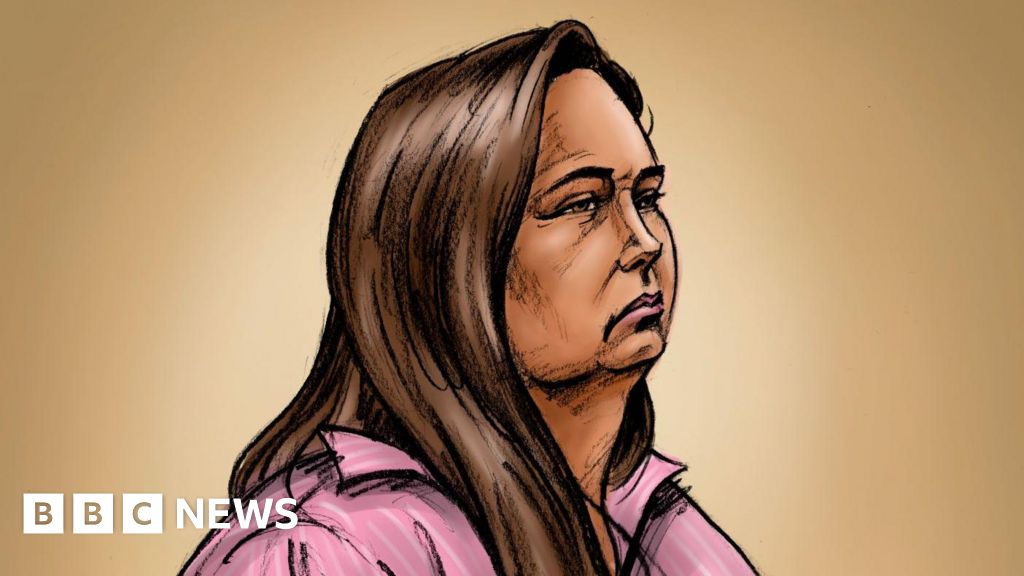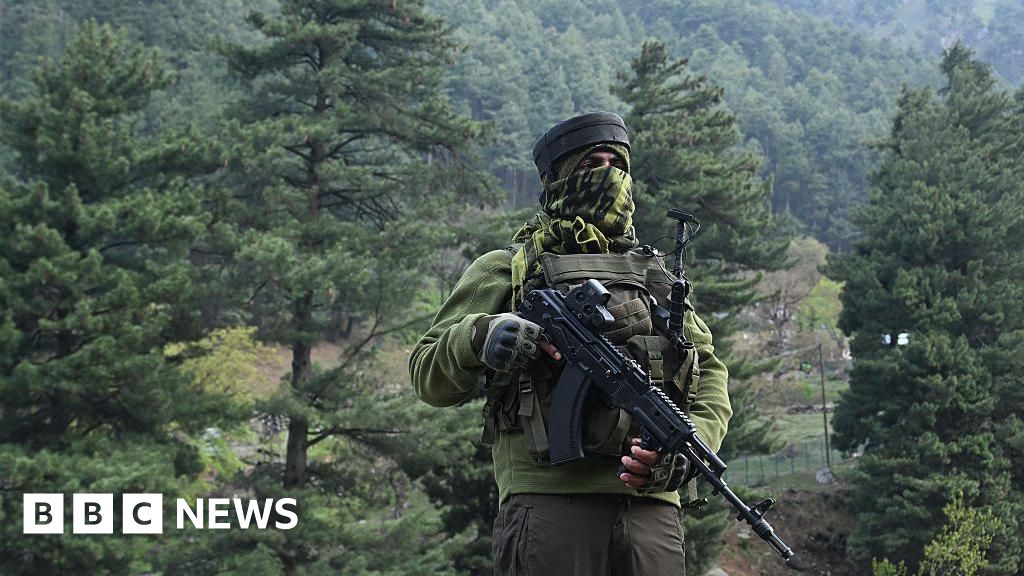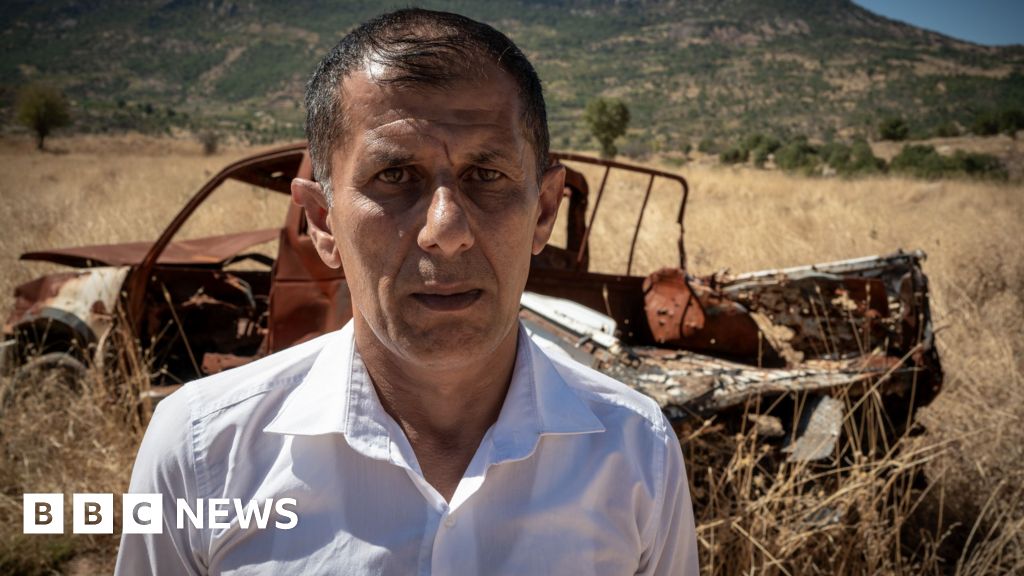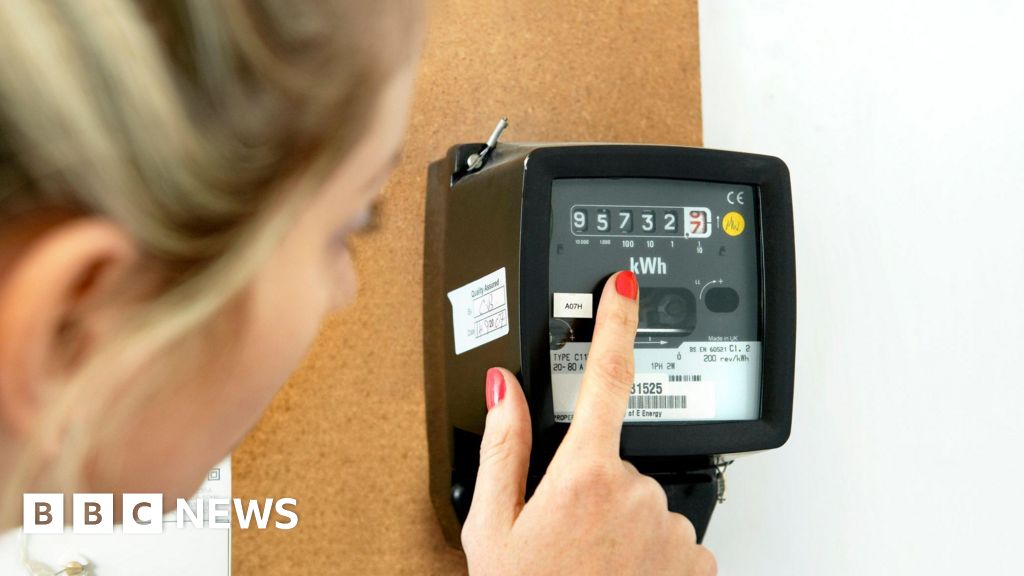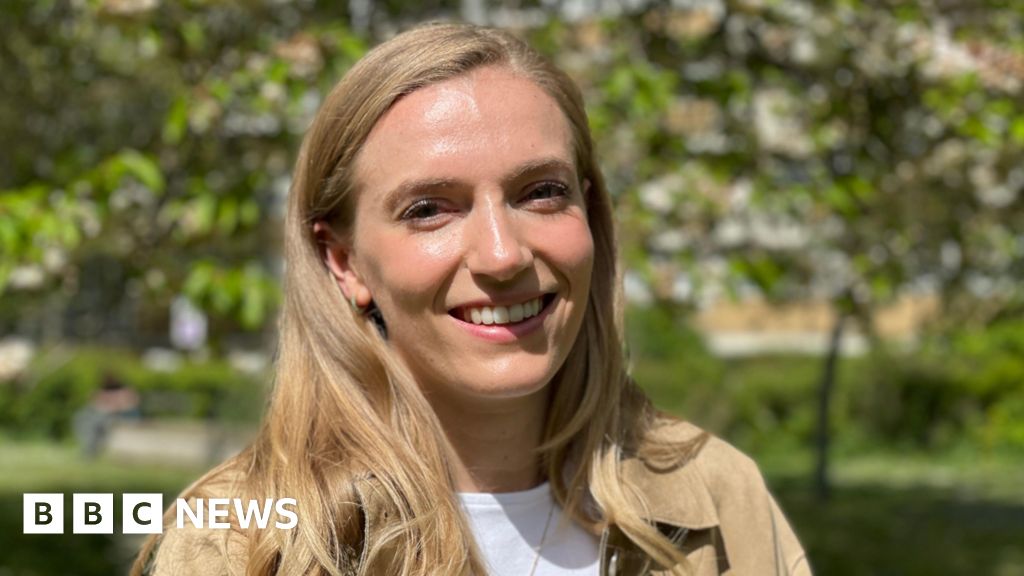Will Vernon
BBC News in Warsaw
A leading Polish doctor has told the BBC she fears for her patients' safety after being targeted by anti-abortion activists.
Gizela Jagielska says she has received thousands of death threats in relation to her work administering legal abortions in a hospital in the town of Olesnica in southwestern Poland.
The facility specialises in complicated pregnancies.
On 17 April, a group of activists led by radical, far-right MEP Grzegorz Braun came to the hospital, prevented Dr Jagielska from leaving her office and attempted to carry out a citizen's arrest.
Footage posted on social media also shows the activists praying.
"[Braun] kept repeating that I am a murderer, and the police should arrest me as I am a dangerous person," said Dr Jagielska. "He grabbed me, pushed me and blocked me in the [office]."
The gynaecologist says police were called, but officers failed to arrest the activists.
As a member of the European Parliament, Braun has immunity from detention.
A spokesman for Poland's interior ministry said police "took steps to ensure the safety of the hospital in Olesnica and the doctor who was verbally attacked by Grzegorz Braun".
The Polish government has condemned Mr Braun's actions.
Since the incident, the doctor has been inundated with abuse, and the hospital has been targeted by a bomb threat.
"I had many, many mails, messages and posts about me in social media; pictures, for example, where I am covered in blood, with the statement 'murderer'," she told the BBC. "Some people wanted to gather in front of my house; my private address was there."
Dr Jagielska says the police are investigating the threats, and offered to arrange close protection, which she turned down due to the nature of her work.
But the police did provide "special numbers" to call in case of an emergency.
"I'm really worried that anybody could come into the hospital - not for me, but for the patients that are having abortions. I think it's a dangerous situation for them also."
The confrontation at Olesnica hospital was sparked by the case of a woman who had a legal, late-term abortion after her unborn baby was diagnosed with a severe foetal anomaly, which is fatal to the child shortly after birth.
The termination was carried out by Dr Jagielska, who explained that the condition was initially misdiagnosed at another hospital, resulting in a late-term abortion.
Poland has some of the strictest abortion laws in Europe which only permit the procedure in cases of rape, incest, or if the mother's life is threatened.
Prime Minister Donald Tusk's coalition, which came to power in late 2023, promised to liberalise abortion laws, but internal disagreements have hampered his efforts.
Rhetoric over a hot-button topic like abortion has become more heated in recent weeks amidst a crucial presidential election campaign in Poland.
Grzegorz Braun, who instigated the attack against Dr Jagielska, is one of those standing for president, but is polling at just 2%.
In a televised presidential election debate on Monday, he made several antisemitic remarks.
Braun was expelled from the Polish parliament in 2023 for putting out candles during the Jewish festival of Hanukkah with a fire extinguisher. Earlier this year he was removed from the European Parliament for disrupting a Holocaust memorial ceremony.
Two of the three frontrunners in the election race, Karol Nawrocki and Slawomir Mentzen, have both spoken out against abortion.
Mentzen, from the far-right Confederation Party, caused controversy recently after he said abortion should be illegal in all cases, including rape, which he appeared to describe as "unpleasantness".
Liberal candidate Rafal Trzaskowski, from Mr Tusk's coalition, has promised abortion reform.
Last week, President Andrzej Duda waded into the debate, describing the controversial abortion case at Olesnica hospital as "barbaric" and "murder".
Dr Jagielska said intimidation of medical staff who carry out abortions in Poland was common, and described Duda's statements as "inappropriate".
"I perform abortions when they are wanted by women and within legal circumstances according to Polish law, so I don't feel like a murderer," she told the BBC. "I feel like an obstetrician who gives proper care for women."
.png)
 4 hours ago
2
4 hours ago
2

